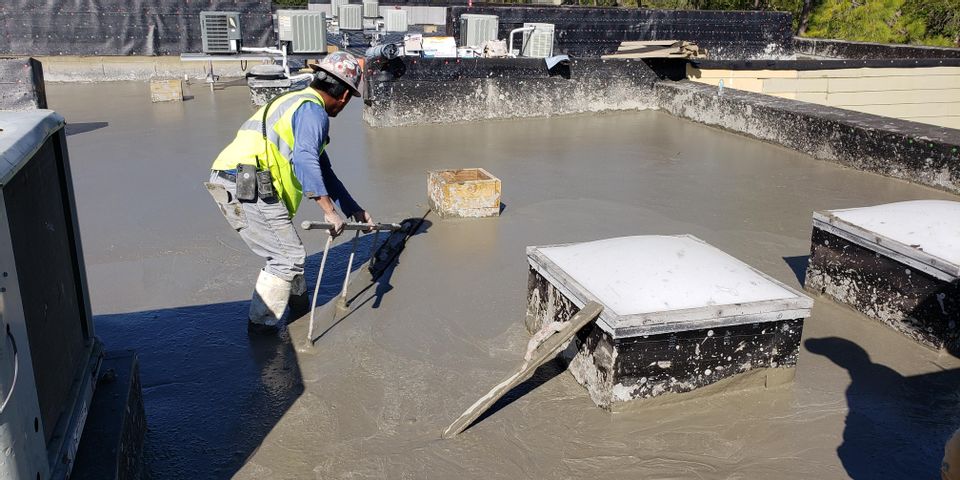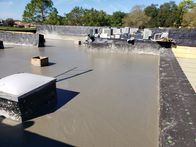4 Common Questions About Lightweight Insulating Concrete Roof Decks

Any builder knows the roof is one of the most crucial parts of any structure. Not only must it be well-designed for the structure, but it must also be made with high-quality materials to provide long-lasting, reliable shelter. Lightweight insulating concrete (LWIC) has been used by contractors, developers, and other construction professionals in various applications for over 60 years but has recently become significantly more popular in residential and commercial building applications. If you’re looking into LWIC, here’s what you need to know.
Lightweight Insulating Concrete FAQ
What is it made of?
LWIC contains Portland cement, aggregates such as vermiculite, water, and preformed cellular foam, which are mixed together, and poured. It is considered a green material and can be used in eco-friendly buildings. LWIC systems also reduce weight and can increase wind uplift ratings.
How does it affect roof life span?
 Weather and temperature fluctuations affect most roofing systems significantly, resulting in issues such as cracks and blistering. However, LWIC is temperature-resistant and cools and heats much more slowly than most materials. This means it expands and contracts less dramatically than most membranes do as the temperature fluctuates, resulting in less wear and a longer life. Also, LWIC provides a monolithic system that doesn’t put as much stress on the membrane compared to rigid joints.
Weather and temperature fluctuations affect most roofing systems significantly, resulting in issues such as cracks and blistering. However, LWIC is temperature-resistant and cools and heats much more slowly than most materials. This means it expands and contracts less dramatically than most membranes do as the temperature fluctuates, resulting in less wear and a longer life. Also, LWIC provides a monolithic system that doesn’t put as much stress on the membrane compared to rigid joints.
Do you need control joints?
Unlike most roof decks, which require rigid joints at the perimeter and vertical projections, LWIC is not structural and doesn’t need such fittings or joint filler. As mentioned, the Portland cement with which it is made is highly resistant to heat and doesn’t expand as much as other materials.
Can I use vented or non-vented substrates?
Lightweight insulating concrete can be applied over numerous substrates. This includes vented or non-vented substrates such as galvanized steel decking, existing membranes, precast, or cast-in-place structural concrete. If the deck is flat with multiple scuppers or drain placements, LWIC and the Epanded Polystyrene (EPS) insulation board that is part of the system will ensure that there is positive slope for adequate drainage.
If you’re a commercial roofing contractor, developer, or other construction professional in Pinellas County, FL, turn to Pro-Crete Systems of Florida for affordable, high-quality products, including lightweight insulating concrete. For over 30 years, they’ve served Largo and the surrounding area, providing roof decks, waterproofing, underlayment, flooring, and specialty services. Call (727) 526-8090 to speak with a friendly team member about your next project or contact the team online.
About the Business
Have a question? Ask the experts!
Send your question

